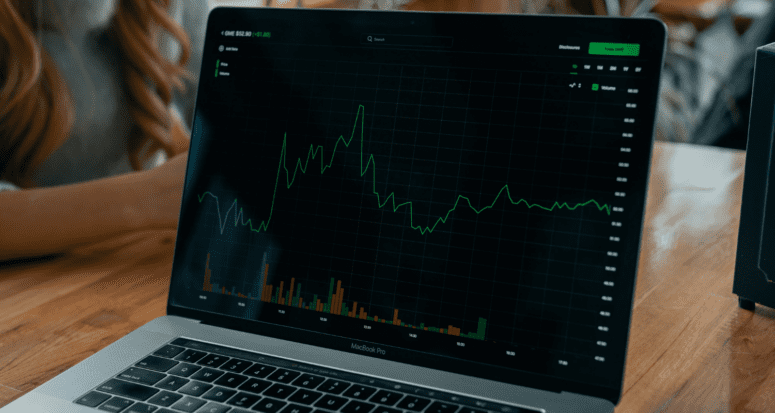How High Will Mortgage Rates Go? See What Experts Are Saying
- Published on
- 8-9 min read
-
 Lindsey Bergeron, Contributing AuthorClose
Lindsey Bergeron, Contributing AuthorClose Lindsey Bergeron Contributing Author
Lindsey Bergeron Contributing AuthorLindsey Bergeron is a Hartford-based freelance writer and editor who writes about small business, lifestyle and real estate.
-
 Richard Haddad, Executive EditorClose
Richard Haddad, Executive EditorClose Richard Haddad Executive Editor
Richard Haddad Executive EditorRichard Haddad is the executive editor of HomeLight.com. He works with an experienced content team that oversees the company’s blog featuring in-depth articles about the home buying and selling process, homeownership news, home care and design tips, and related real estate trends. Previously, he served as an editor and content producer for World Company, Gannett, and Western News & Info, where he also served as news director and director of internet operations.
The U.S. housing market is undergoing a rebalancing. Visit HomeLight’s 2022 Housing Trends Hub for information on how to navigate a shifting market — whether you’re a seller, buyer, or homeowner.
Mortgage interest rates have been on a wild ride so far this year. In January, home buyers were locking in 30-year mortgages at 3.29%. Fast forward a few months, and the rate increased to between 5% and 6%.
Whether you’re looking to buy, sell or refinance your home, these rates could have a significant impact on your future plans. If you’re asking yourself how high mortgage rates will go, here is what you need to know about the current state of the real estate market — and why the rising rates may not be quite as scary as they may seem.
Who sets mortgage interest rates?
In July, the U.S. Federal Reserve made its fourth consecutive interest rate hike of 2022. These benchmark interest rate hikes make borrowing money more expensive for consumers and banks. With banks paying more interest on the money they lend each other, they’re forced to increase the costs of their products and services to stay profitable — including mortgage rates.
So while the Fed doesn’t set mortgage interest rates, changes they make to the benchmark rate do loosely impact them. Other factors that come into play include the overall state of the economy and the bond market.
What’s causing mortgage interest rates to increase?
The key reason the Federal Reserve has increased interest rates so much is to fight inflation, which reached a 40-year high in June. The rate of inflation not only makes things more expensive for consumers, but for businesses, as well. As we mentioned earlier, raising mortgage interest rates is one way banks offset these rising costs so that they can continue to stay profitable.
“There’s a lot of tension built into interest rates right now,” says Martin Orefice, CEO of Rent to Own Labs. “The Fed’s rate hikes are pushing interest rates up even as demand for homes remains high. People are eager to sell while the market is still hot.”
How high will mortgage rates go?
Although mortgage interest rates rose rapidly this year, it’s important to consider that those increases occurred in anticipation of Federal rate hikes. According to Bill Ryze, a certified Chartered Financial Consultant (ChFC) and board advisor at Fiona, this indicates mortgage rates won’t continue climbing as they did early in 2022. “The mortgage rates will continue rising but at a slower rate since the rates have already been priced into the effects of the Fed rate hikes,” he says.
Dustin Holmberg, VP of Lending for Clearview Federal Credit Union says, “What I would anticipate is that rates will level off for the rest of the year. There’s still potential for an upside surprise, but many of the long-term, forward-looking indexes suggest we’ve hit a moderation point.”
And while interest rates do seem high when compared to two years ago, mortgage and real estate experts agree that it’s all about perspective. “We’re still towards the lower end of where mortgage rates have been historically over the last 40 years,” Holmberg says.
“When the rates were 2.8% it was like free money,” says Kathryn Townsend, Maine real estate agent and owner of Townsend Real Estate. “I don’t know that we’ll ever see that in the near future again.”
Mortgage rate trends 1974-2021
| Year | Average 30-year rate | Year | Average 30-year rate | Year | Average 30-year rate | Year | Average 30-year rate |
| 1974 | 9.19% | 1986 | 10.19% | 1998 | 6.94% | 2010 | 4.69% |
| 1975 | 9.05% | 1987 | 10.21% | 1999 | 7.44% | 2011 | 4.45% |
| 1976 | 8.87% | 1988 | 10.34% | 2000 | 8.05% | 2012 | 3.66% |
| 1977 | 8.85% | 1989 | 10.32% | 2001 | 6.97% | 2013 | 3.98% |
| 1978 | 9.64% | 1990 | 10.13% | 2002 | 6.54% | 2014 | 4.17% |
| 1979 | 11.20% | 1991 | 9.25% | 2003 | 5.83% | 2015 | 3.85% |
| 1980 | 13.74% | 1992 | 8.39% | 2004 | 5.84% | 2016 | 3.65% |
| 1981* | 16.63% | 1993 | 7.31% | 2005 | 5.87% | 2017 | 3.99% |
| 1982 | 16.04% | 1994 | 8.38% | 2006 | 6.41% | 2018 | 4.54% |
| 1983 | 13.24% | 1995 | 7.93% | 2007 | 6.34% | 2019 | 3.94% |
| 1984 | 13.88% | 1996 | 7.81% | 2008 | 6.03% | 2020 | 3.10% |
| 1985 | 12.43% | 1997 | 7.60% | 2009 | 5.04% | 2021 | 2.96% |
*Note of interest: While the 1981 average was 16.63%, interest rates peaked at 18.45% in October of 1981. Source: Freddie Mac
It’s been important to educate sellers that as interest rates rise, they have to come in with a more modest list price. Buyers are being more conservative, which means prices are going down.
 Kathryn Townsend Real Estate AgentClose
Kathryn Townsend Real Estate AgentClose Kathryn Townsend Real Estate Agent at Owner/Townsend Real Estate Currently accepting new clients
Kathryn Townsend Real Estate Agent at Owner/Townsend Real Estate Currently accepting new clients
- Years of Experience 34
- Transactions 667
- Average Price Point $375k
- Single Family Homes 465
What do higher interest rates mean to home sellers?
Although demand is still greater than the supply of available homes in many markets, the rising interest rates are starting to create greater stabilization than we’ve seen in the past few years. Rewind a few months, and sellers were getting multiple offers — some in cash — that were $100K to $150K over asking price. Now that buyers are being presented with high home prices and higher interest rates, affordability is becoming increasingly important.
“It’s been important to educate sellers that as interest rates rise, they have to come in with a more modest list price,” Townsend says. “Buyers are being more conservative, which means prices are going down.”
From Townsend’s perspective, this shift isn’t necessarily a bad thing. “I’m not an advocate for a seller getting 20 offers and their house going for $100K over asking. There was nothing healthy about that market.”
Holmberg agrees. “We’re seeing demand for housing start to curb, and that’s probably a good thing. We don’t need prices going up on real estate 30% year over year. It’s not sustainable.”
The bottom line? Sellers can still expect a swift home sale at or slightly above asking price in many markets — it just may not be quite the frenzy that surrounded home sales in the past two years. “We’re seeing a lot of price reductions,” Townsend says. “Personally, I’d rather see my seller get multiple offers than come in too high, have to reduce the price, and chase the market.”
What do higher interest rates mean to homebuyers?
The combination of rising home prices and interest rates has pushed the average mortgage payment up by almost 40 percent compared to last year. “[With the rising interest rates], all of my buyers had to get pre-qualified again because what they could afford changed,” Townsend says.
To put this in perspective, a $250,000 30-year mortgage would have cost $1,038 a month in late 2021. With interest rates dancing between 5% and 6%, that same mortgage will now cost over $1,400 a month (before taxes and fees).
Although the one-two punch of high home prices and rising interest rates is causing some buyers to put their home buying plans on hold, Townsend tries to help her buyers find options that work for their budgets — without pulling out of the market.
“If someone plans to be in their house forever, I might talk to them about paying some points up front to lower the monthly payment,” Townsend explains. “Or, I may suggest they talk to their mortgage broker about a variable rate mortgage and locking that in for five to seven years instead of a 30-year rate.”
“Buyers need to look at housing as a long-term investment,” Holmberg says. “Your home is the only investment that you get a functional benefit from and there is a cost associated with the use of it. That’s important to consider when you’re looking at the total affordability of your home.”

What do higher interest rates mean to homeowners in general?
Mortgage interest rates are directly applicable to homeowners in two cases: if they’re thinking about selling their home or they want to refinance. “If you were thinking about refinancing, you missed that previous low,” Holmberg says.
With mortgage experts generally recommending an interest rate reduction of at least .75 percentage points for a refinance to make solid financial sense, many homeowners are currently holding off on any refinance decisions right now. In fact, refinance activity dropped by 80 percent in the first quarter of this year, mortgage data firm Black Knight reported.
Holmberg advises that if homeowners are considering a refinance, that they don’t make that decision based on lifestyle equations, which has a way of eroding their financial health.
“There are other options such as a home equity loan or home equity line of credit that would make more sense,” he says. “I would recommend that anyone who is considering this option talk to an unbiased and trusted financial advisor for advice.”
Is the 40-year mortgage back on the horizon?
Although the Federal Housing Administration (FHA) did make an announcement in April that would allow struggling homeowners to move into a 40-year mortgage, there hasn’t been any additional chatter about longer mortgage terms making a comeback. In fact, Townsend says she wasn’t aware of any banks in her area of Maine that provided 40-year options — now or in the past.
What does seem to be making more of a comeback is the adjustable rate mortgage, however. With interest rates rising, these mortgages give homebuyers the ability to lock in at a lower rate for the next five to seven years. This can be an especially appealing option for buyers who don’t plan to be in their homes for a long period of time — or who are comfortable refinancing when the introductory rate expires.
Understanding the highs and lows of real estate
Although mortgage interest rates have risen rapidly in 2022, it’s important to remember that the ultra-low rates we saw over the last few years weren’t necessarily normal either. In December 2007, the average rate was 6.17%. In October 1981, interest rates peaked at 18.45%. “We have this preconceived notion in our heads that everything stays normal all the time,” Holmberg says. “But prices go up and prices go down…that’s the way of the market.”
Townsend shares a similar sentiment. “People need to understand that we’re coming off of the Fed trying to manipulate the market. This isn’t like [when the housing market crashed in] 2008. This happened because they’re trying to regulate the economy on purpose.”
If you’re considering buying or selling a house, and want expert advice on how the current market conditions could impact your decision, HomeLight’s Agent Match can help connect you with a top agent in your area. Our Best Time to Sell Calculator and Home Affordability Calculator could also be helpful as you decide on the right next step for you.
Header Image Source: (Tech Daily / Unsplash)
- "Rising mortgage rates are hitting Americans’ wallets. Here’s how to adjust your housing budget," CNBC (July 2022)
- "The Typical Mortgage Payment Is Up 39% From a Year Ago," Money (April 2022)
- "1.3 Million Homeowners Could Still Save Money By Refinancing. Here’s How to Tell If You’re One of Them," NextAdvisor (July 2022)
- "HUD No. 22-070," U.S. Department of Housing and Urban Development (April 2022)
- "More homebuyers opt for adjustable-rate mortgages, along with the risks," NBC News (May 2022)
